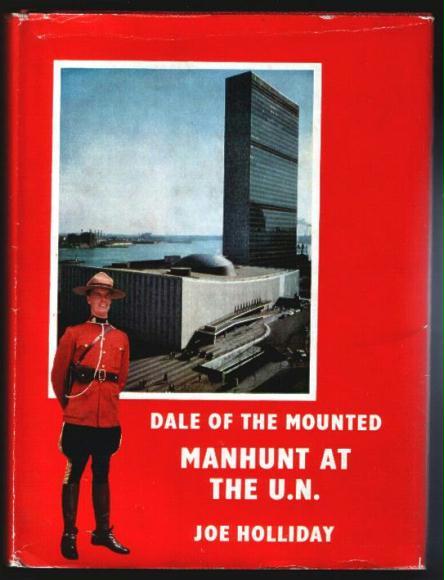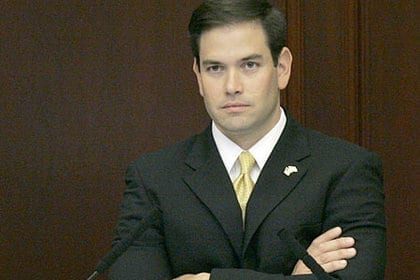MSNBC boldly moves to plug its one remaining hole
By hiring long-time Obama spokesmen Robert Gibbs and David Axelrod, the cable news network clarifies its function
MSNBC today hired long-time Obama political adviser David Axelrod.
Last month, MSNBC‘s Al Sharpton conducted a spirited debate about whether Obama belongs on Mount Rushmore or instead deserves a separate monument to his greatness (just weeks before replacing frequent Obama critic Cenk Uygur as MSNBC host, Sharpton publicly vowed never to criticize Barack Obama under any circumstances: a vow he has faithfully maintained). Earlier that day on the same network, a solemn discussion was held, in response to complaints from MSNBC viewers, about whether it is permissible to ever allow Barack Obama’s name to pass through one’s lips without prefacing it with an honorific such as “President” or “the Honorable” or perhaps “His Excellency” (that really did happen).
Yesterday, Chris Matthews – who infamously confessed that listening to Obama (sorry: President Obama) gives him a “thrill going up his leg” –hosted another discussion, this one involving former Obama campaign aide and MSNBC contributor Joy Reid, about whether the Honorable President should be mounted on Mount Rushmore (Matthews restrained himself by explaining that “I’m not talking about Mt. Rushmore but perhaps the level right below it”, but then shared this fantasy: “If [Obama] were hearing us talking about him maybe mounting Mount Rushmore, getting up there with the great presidents…what would he be thinking? ‘That’s exactly what I’m doing?'”). A Pew poll found that in the week leading up to the 2012 election, MSNBC did not air a single story critical of the President or a single positive story about Romney – not a single one – even as Fox aired a few negative ones about Romney and a few positive ones about Obama. Meanwhile, Obama campaign aides who appeared on MSNBC were typically treated with greater deferencethan that shown to the British Queen when one of her most adoring subjects is in her presence for the first time.
Surveying this assembled data, one does not need to be a veteran cable news executive to see what MSNBC has been so sorely lacking: people who loyally defend President Obama. Thankfully, MSNBC is now boldly fixing that glaring problem; they began two weeks ago with this:
“Former White House press secretary Robert Gibbs has become a contributor for MSNBC. Rachel Maddow introduced Gibbs as a new member of her network’s stable in the final minutes before President Obama’s State of the Union address on Tuesday night. . . . Gibbs was White House press secretary from 2009 to early 2011, when he left to become a senior campaign adviser for Obama’s re-election.”
I wonder: does someone who goes from being an Obama White House spokesman and Obama campaign official to being an MSNBC contributor even notice that they changed jobs?
But MSNBC wasn’t content merely to hire Obama’s former Press Secretary; today they did this:
“David Axelrod, the former White House senior advisor and senior strategist for President Obama’s 2008 and 2012 campaigns, has joined NBC News and MSNBC as a senior political analyst, the networks announced today. . . . Like Gibbs, Axelrod will appear across the networks’ programming.”
Impressively, David Axelrod left the White House and actually managed to find the only place on earth arguably more devoted to Barack Obama. Finally, American citizens will now be able to hear what journalism has for too long so vindictively denied them: a vibrant debate between Gibbs and Axelrod on how great Obama really is.
All the usual and substantial caveats apply when discussing the generalized attributes of MSNBC or comparing it to Fox News (just today, my former Salon colleague Joan Walsh, an MSNBC contributor,wrote about a study that “finds ‘liberals’ [are] more likely to favor targeted killings once they know it’s Obama’s policy”, and on the weekends, Chris Hayes regularly criticizes Obama from the left while, post-election, Rachel Maddow sometimes does the same). Still, there’s still something disturbing, even dangerous, about media outlets, even those overtly ideological ones, that are generally designed for the mission of defending those in power: a critique that Media Matters once compellingly voiced about Fox News, in part by quoting me expressing that same concern about Fox.
MSNBC is far from aberrational. The overriding attribute defining the relationship of the US media to those in power is servitude (recall how even George Bush’s own Press Secretary wrote a book mocking the media for extreme deference to the Bush White House). Politico today has a long article voicing the complaints of the White House press corps about a lack of access to the president. Revealingly, these complaints exploded into public view this weekend when Obama played golf with Tiger Woods and didn’t let the angry journalists even see the match or take pictures of Tiger!
The golf grievances were led by White House Correspondents Association President Ed Henry of Fox, who a couple of years ago demonstrated exactly what kind of “access” he craves when he publicly celebrated in the most giddy way imaginable how he got to play water sports with Rahm Emanuel at Joe Biden’s official Vice President house (yes, that also really happened). In response to the ensuing criticism over how strangely happy he obviously became at being squirted in the face by Obama’s then-Chief of Staff, Henry appeared on NPR where the following irony-free exchange, one of my favorite ever, actually occurred:
“NPR’s BROOKE GLADSTONE: ‘If these events don’t influence coverage, why do you think the White House throws them? Do they just want to shoot you with a super-soaker?’
“ED HENRY: ‘Maybe they wanna actually get to know us as people sometimes.'”
“Maybe they wanna actually get to know us as people sometimes”: that’s why Obama officials throw parties for White House journalists, said Ed Henry. That is easily one the funniest sentences ever. Did I mention that Ed Henry is the head of the White House Correspondents Association?
Notably, these “frustrated” White House journalists now complaining about a lack of “transparency” aren’t objecting to Obama’s concealment of multiple legal documents which purport to authorize radical powers he claims or to his war on whistleblowers. Instead, they’re objecting that the White House doesn’t “cooperate” with them enough (Obama officials release official photos and quotes through social media rather than to reporters) and they don’t get to see the president enough or sit with him for interviews.
That you can cover what political officials do more effectively when you act adversarially and without their “cooperation” doesn’t seem to occur to them. Moreover, getting to sit for personal interviews with the president usually produces anything but adversarial questioning. As even Politico admits: “some reporters inevitably worry access or the chance of a presidential interview will decrease if they get in the face of this White House.” And indeed, see what happened in 2008 when Politico’s own Mike Allen interviewed George Bush with questions so vapid and reverent that it would have shamed his profession if it were capable of that. Or just review the questions asked of Obama the last time he sat for an “interview”, this one with the founder of My.BarackObama.com Chris Hughes, who just purchased the New Republic.
Still, MSNBC is going a few steps further. Most shows there are suffused with former DNC spokespeople, Obama aides and other types whose overarching political mission is a defense of the president. I suppose there’s some commendable candor in hiring Obama’s two most recognizably loyal aides in less than two weeks: any lingering doubt about its primary purpose as a network is dispelled, so that, I suppose, is good on some level (just as Fox’s heavy reliance on long-time GOP operative Karl Rove had the same clarifying effect). As the Atlantic’s Connor Simpson asked today about what he called “the most White House-friendly network”: “How Much Is Obama Controlling the Message on MSNBC?” His answer: the administration knows there is a “fading need for a White House press corps when it has guys like Axe and Gibbs to unofficially lean the right way on a left-leaning network.”
But whatever one wants to call this, “journalism” is the wrong label. Even ideologically-friendly media outlets which claim that mantle should be devoted to accountability and treating those who wield power adversarially, not flattering the preexisting beliefs of their audience and relentlessly glorifying political leaders. Presidents have actual press secretaries and Party spokespeople for that.
New books on Obama and the press
Two very good new books detail the way the press relates to Obama.Panic 2012, by journalist Michael Hastings, describes how his media colleagues “fawn” over Obama when he graces them with his presence (even extreme cynics will be shocked by how extreme some of the behavior is). The other, Spin Masters, by conservative David Freddoso, is a comprehensive account of how the Adversarial Press Corps in general has treated with Obama with great love and support.






 Canada’s role in the postmodern imperial world is as a poster child for promoting formal electoral democracy — at home and abroad. Internationally, instead of offering peacekeeping troops to the UN, as in days of yore, and promoting grassroots development in the third world, it takes orders directly from its US-Euro masters, helping them invade countries if necessary to set up the mechanisms for elections, and ignoring for the most part the real problems that the poor of the world face. It uses its foreign diplomatic service not to promote peace and social justice, but to support the needs of Canadian corporations abroad and facilitate their quest for profits.
Canada’s role in the postmodern imperial world is as a poster child for promoting formal electoral democracy — at home and abroad. Internationally, instead of offering peacekeeping troops to the UN, as in days of yore, and promoting grassroots development in the third world, it takes orders directly from its US-Euro masters, helping them invade countries if necessary to set up the mechanisms for elections, and ignoring for the most part the real problems that the poor of the world face. It uses its foreign diplomatic service not to promote peace and social justice, but to support the needs of Canadian corporations abroad and facilitate their quest for profits.
